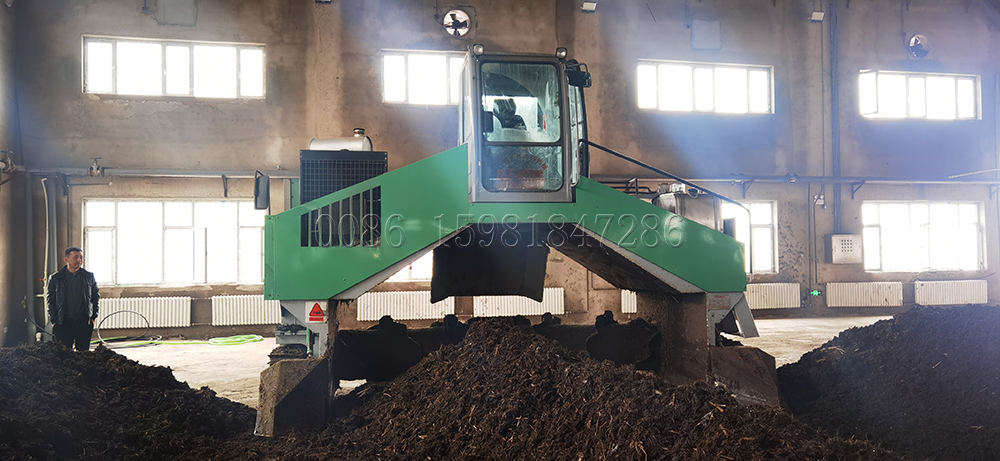Why should the temperature be strictly controlled during composting?
We all know that composting can make waste materials such as livestock and poultry manure and crop straws become harmless and recyclable fertilizer, and it is also an important way for the treatment and utilization of organic solid waste.
In the initial stage of composting, microorganisms grow and multiply. And the heat generated from the catabolize and metabolize makes the temperature of composting rise rapidly. When the temperature reaches 40℃-50℃, the mesophilic bacteria are in the best condition to decompose a large amount of organic matter.

When the temperature rises to high temperature, you need to pay more attention to the oxygen supply by turning (usually use a compost turning machine for turning operations). After the temperature reaches high temperature, the mesophilic bacteria are inhibited, and the high-temperature bacteria enter the excited state. And it continue to decompose the refractory components and fibers remaining in the organic matter. At the same time, the parasite eggs and pathogenic bacteria in the compost are killed. With the reduction of high temperature and substrate, the microbial activity gradually decreases, or even inhibits.
It is generally believed that high temperature is beneficial to the biochemical process of composting, which can kill pathogenic bacteria and achieve harmlessness. But whether the temperature exceeds the optimal physiological temperature value is crucial. Another important significance of the influence of temperature on composting microorganisms is that after high temperature treatment, heat-sensitive pathogens in the garbage are suppressed or even die, thereby greatly improving the sanitary safety of compost.

